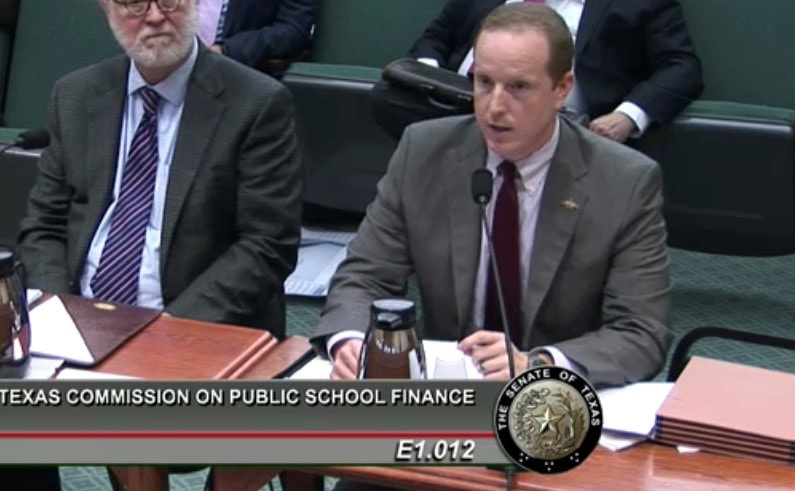|
In this Let People Prosper episode, let's discuss one of the things that's on most Texans' mind: property taxes. I recently testified before the Texas Commission on Public School Finance's Revenue Workgroup on the problem and solutions to wretched property taxes in Texas. Here's my written testimony and you can watch my oral testimony at time 59:45 here. Texas’ property tax system has turned property owners into renters, where government is their landlord and Texans who struggle to pay annual tax bills face confiscation of their properties. Additionally, the growth of government is harming taxpayers and the economy through higher taxes and more regulation. The goal must be to eliminate all property taxes as they violate property rights, destroy economic growth, and disproportionately hurt the poor while being subjectively determined as they support excessive local government spending. A good place to start down that road is by ending nearly half of the property tax burden in Texas through the elimination of the school maintenance and operations (M&O) property tax, which is supported by the 18 groups in the Conservative Texas Budget Coalition. This is relatively easier than other local tax jurisdiction because the state already determines the school finance formulas and has a way to distribute funds to school districts. Let's discuss. First, we must identify the problem. From 1996 to 2016, total property taxes across the state have increased by 233% while the school portion of the property tax increased by 201%. Personal income has increased by 199%; however, the best metric of the average Texan's ability to pay taxes is measured by the compounded growth of population plus inflation for that period, which was only 123%. This means that the total tax levy increased by 1.9 times more than pop+inf and the school district tax levy increased by 1.6 times more than the average Texan's ability to pay. It's no wonder that many people are being forced out of their homes and businesses because of skyrocketing property taxes. This is a travesty what government is doing to people who are trying to leave a legacy for their kids and grandkids. This points to the disease of the symptom of high taxes: excessive government spending. Taxes (and deficits) are always and everywhere a spending problem. To gain control of skyrocketing taxes, we must first get control of the driver of the problem in excessive government spending. This brings us to a solution: By limiting state and local government spending, Texas can use taxpayer dollars collected at the state level to eliminate the school maintenance and operations (M&O) property tax, which is nearly half of the property tax burden, very soon. While other options have been tried in the past, like raising the homestead exemption and swapping the property tax with a reformed franchise tax ("margins tax"), those didn't permanently reduce property taxes--making those attempts a failure in the eyes of most taxpayers. Fortunately, there are solutions. One option is to permanently buy down the school M&O property tax with state surplus dollars until it is eliminated. Here's how:
Another option is to replace the school M&O property tax by broadening the sales tax base and limiting state and local government spending. Here's how that could work:
Clearly there is no silver bullet. This will be a difficult hill to climb whichever option is chosen.
Recently, two economists from Rice University estimated that if the buy down option or the swap option over time was chosen, the Texas economy could expand by about $12.5 billion above expected growth and private sector job creation could increase by 183,000 net jobs above expected growth soon after reform. The Texas Model is strong, but there's more that must be done. These options would provide a clear path to more prosperity and less of a burden of holding property until you can finally own it when property taxes are eliminated entirely.
0 Comments
Leave a Reply. |
Vance Ginn, Ph.D.
|




 RSS Feed
RSS Feed